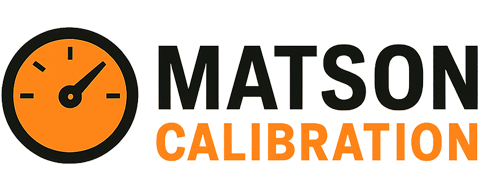No products in the cart.

In today’s fast-paced industrial landscape, accuracy is no longer a luxury—it is a necessity. Whether in aerospace, automotive, pharmaceuticals, or energy production, companies rely on precise measurements to ensure quality, efficiency, and safety. At the core of this precision lies a vital class of devices: calibration instruments.
These tools not only verify the accuracy of test equipment but also ensure compliance with international standards. For industries that must maintain consistent performance under strict regulations, the role of calibration instruments has never been more critical.
Why Calibration Instruments Matter in Modern Industry
Ensuring Consistency and Quality
In manufacturing, even a minor deviation can lead to faulty products, costly recalls, or safety hazards. By using calibration instruments such as multifunction calibrators, companies ensure their measurement tools remain within tolerance, guaranteeing product quality across every batch.Compliance with International Standards
Organizations must adhere to ISO, IEC, and other global standards. Calibration instruments help verify and document measurement accuracy, ensuring compliance during audits and certifications.Reducing Downtime and Costs
Faulty instruments can lead to unplanned downtime, wasted resources, or safety risks. With regular use of devices like pressure calibrators, industries prevent unexpected failures and keep operations running smoothly.
Types of Calibration Instruments Driving Industrial Accuracy
1. Pressure Calibrators
Used extensively in oil & gas, aviation, and power plants, pressure calibrators verify pressure gauges, transmitters, and sensors. For example, the Fluke 729 Automatic Pressure Calibrator enables precise pressure generation and documentation.
2. Temperature Calibrators
Temperature accuracy is crucial in food processing, pharmaceuticals, and laboratories. Tools like dry-block calibrators and temperature baths ensure thermometers and sensors provide reliable readings. Browse our temperature calibration instruments to see industry-standard solutions.
3. Electrical Calibrators
Electrical test instruments such as multimeters, clamp meters, and oscilloscopes require routine calibration. High-performance multifunction calibrators ensure their measurements remain precise, reducing the risk of inaccurate diagnostics.
4. Torque Calibration Tools
In automotive assembly lines and aerospace manufacturing, torque accuracy is critical for safety and reliability. Torque calibration instruments ensure tools like torque wrenches and screwdrivers deliver consistent tightening forces.
The Business Case for Investing in Calibration Instruments
Safety Assurance: Prevents risks related to faulty readings in critical environments.
Cost Efficiency: Reduces waste, rework, and downtime.
Regulatory Compliance: Supports adherence to global quality standards.
Reputation and Trust: Accurate processes build customer confidence and brand credibility.
For instance, pharmaceutical companies depend on highly accurate temperature calibrators to meet FDA requirements, while power plants rely on electrical calibrators for grid stability and compliance.
Conclusion
The role of calibration instruments in modern industry extends far beyond compliance—it defines the very foundation of reliability and trust. By ensuring measurement tools perform accurately, industries can deliver consistent quality, improve safety, and maintain operational efficiency.
Whether you need a pressure calibrator for high-demand industrial environments, a temperature bath for laboratory accuracy, or a torque calibration tool for mechanical precision, the right calibration solution will safeguard your processes and strengthen your competitive edge.
Explore our full range of calibration instruments to find the tools that meet your industry’s accuracy requirements.
